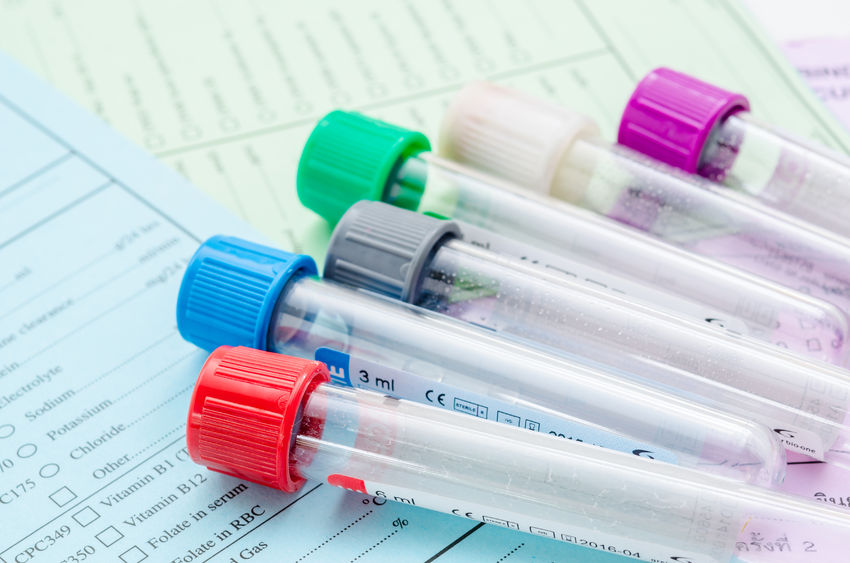
Beta 2 Glycoprotein Antibodies IgM
Also known as Beta 2 Glycoprotein Antibodies Igm Elisa BloodWhat is this test?
Beta 2 Glycoprotein 1 Antibodies IgM ELISA Blood Test is used to detect the presence of IgM antibodies in the blood. This test helps to determine a condition called Antiphospholipid Syndrome.
What is Beta 2 Glycoprotein 1 Antibodies and Antiphospholipid Syndrome?
Beta 2 Glycoprotein 1 is known as apolipoprotein H is a protein present in the human body. Antibodies are produced by the immune system when any foreign substance or virus or bacteria enters into the body. Autoantibodies are antibodies that are produced by the immune system against the body's own tissues or organs. Beta 2 Glycoprotein 1 Antibodies are autoantibodies that are formed due to inappropriate blood clotting. There are mainly three classes of Beta 2 Glycoprotein 1 Antibodies IgG, IgM, or IgA.
Beta 2 Glycoprotein 1 Antibodies is also considered as one of the primary autoantibodies called antiphospholipid antibodies. Antiphospholipid antibodies attack the body's own lipid-proteins called phospholipids that are found in the outermost layer of cells and platelets. These antibodies are developed in case of an improper clotting of blood. Antiphospholipid antibodies are seen in individuals with an autoimmune disorder called antiphospholipid syndrome (APS).
Antiphospholipid syndrome (APS) is a disorder that results from inappropriate blood clotting. This condition can cause blood clots that could lead to heart attack, stroke, or pulmonary embolism (blockage of one or more arteries in the lungs due to a blood clot). It also results in low platelet count, miscarriages and pregnancy complications.
Antiphospholipid antibodies are also seen in individuals with autoimmune disorders such as lupus.
This test screen for the presence of beta 2 Glycoprotein 1 Antibodies IgM in the blood.
Why this test is performed?
This test is one among many tests performed to evaluate for antiphospholipid syndrome (APS). Your doctor may ask you to perform this test if he suspects antiphospholipid syndrome or if you experience signs and symptoms of an antiphospholipid syndrome such as chest pain, headache, shortness of breath, memory loss, stroke, seizures, speech or cognitive changes, etc. However, along with this test your doctor may ask to perform a few more other antiphospholipid antibodies tests to confirm the diagnosis.
This test is also recommended if you have had one or more unexplained blood clots in an artery or vein, or in case of recurrent miscarriages.
Precautions:
Certain medicines such as phenytoin, penicillin, and procainamide may affect the test results. Inform the healthcare provider about all the medications you take before the test.
Test Preparation
Inform your doctor if you are on any medications, have any allergies or underlying medical conditions before your Beta 2 Glycoprotein Antibodies IgM. Your doctor will give specific instructions depending on your condition on how to prepare for Beta 2 Glycoprotein Antibodies IgM.
No specific preparation is required for this test.
Understanding your test results
If the test results are positive, it indicates that you may have antiphospholipid syndrome (APS). However, in case of positive results, your doctor may ask to perform a few more other antiphospholipid antibodies tests to confirm antiphospholipid syndrome (APS). Individuals with an autoimmune disorder, such as lupus may also give a positive result. Based on clinical symptoms and a few more additional tests your doctor may give an appropriate interpretation of test results.
If the test results are negative, it may indicate that you are unlikely to have an antiphospholipid syndrome (APS). However, if other antiphospholipid antibodies tests give positive results and if you have signs and symptoms, then you are likely to have APS.
Positive or negative test results are not the ultimate diagnostic of APS. This test indicates the presence or absence of Beta 2 Glycoprotein 1 Antibodies IgM at the time of testing. Therefore the diagnosis of APS requires minimum two positive results on this test at least 12 weeks apart with the presence of clinical symptoms of APS.
Based on the test results, your doctor may advise appropriate medical treatments or further diagnostic tests.
| Gender | Age groups | Value |
| OTHER | All age groups | >40U/ml indicates presence of APLA syndrome |